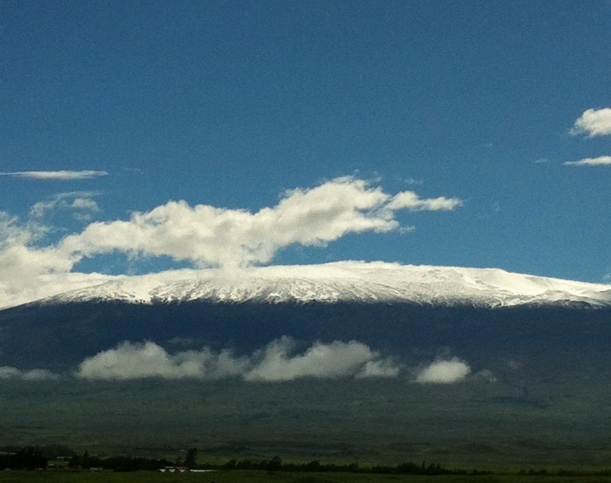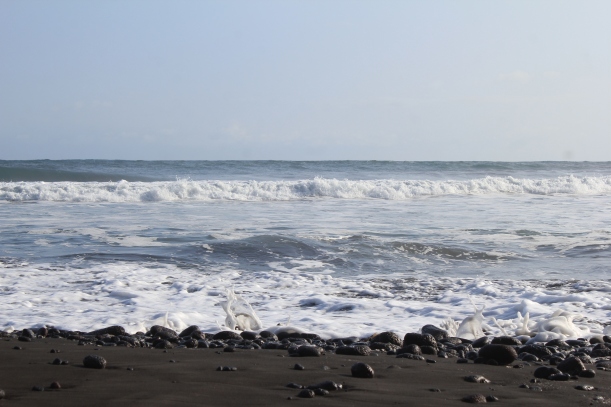Depressed.
P
R
E
S
S
E
D
into the earth despite every insistence for light.
She witnessed the moment he stopped insisting. “I saw a light go out,” she said. A shout came off of the page, “The Thirty Meter Telescope cleared its last major hurdle Friday.”[1]
The “hurdle”—the problem, the obstacle, the barrier, the stumbling block, the hindrance, the complication, the difficulty—was US, those insisting that the true obstruction was what would be built on the summit of our existence, our mauna.
Depressed.
P
R
E
S
S
E
D
into the earth despite every insistence for space.
A man once asked, “How are indigenous persons meant to understand themselves, and instruct their children, in a world no longer willing to make a place for them?”[2]
That mountain is our place, we insist. It is our space, one we situate ourselves in and around. It is how we understand ourselves, our role, our right. The light may have gone out in his eyes, but we will insist for him, insist that the world continue to honor our spaces.
Depressed.
P
R
E
S
S
E
D
into the earth despite every insistence for life.
Years ago, a Crow man mourned the loss of a way of life, “…when the buffalo went away the hearts of my people fell to the ground, and they could not lift them up again. After this nothing happened.”[3]
But is there truly a state of nothing-ness, one in which things simply cease to occur? Or did he move on and find new ways to persist and to insist that his very existence have meaning? Yes.
He may have been depressed. Oh, he may have been
P
R
E
S
S
E
D
into the earth despite his every insistence.
But those who pushed him down, who tried to burry his hope and to burry him with it, did not realize that it was from the earth that he was born.
Therefore, it is from that space—his hands clasping soil, his feet tangled with roots, his mouth feeding on stones—that he will rise again.
Radical? They can call us radical for having hope, even when it seems like we have lost the battle.
Because that, my friend, is us, insisting. No longer will we be depressed. Lights may go out. But the can always, always, always be reignited.
[1] From a newspaper article printed in the West Hawaiʻi Today. It can be accessed here.
[2] From a piece entitled “On Being Indigenous: An Essay on the Hermeneutics of ‘Cultural Identity’” by Michael Chandler, p. 85.
[3] From a book entitled Radical Hope: Ethics in the Face of Cultural Devastation, by Jonathan Lear, p. 2.


